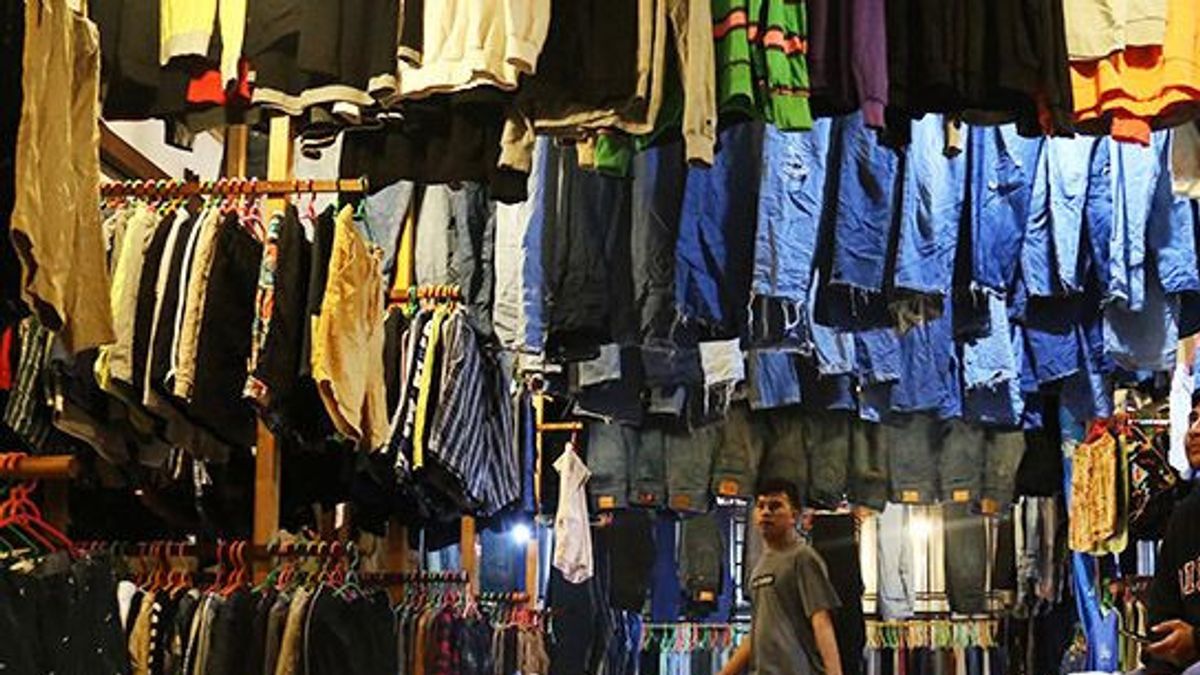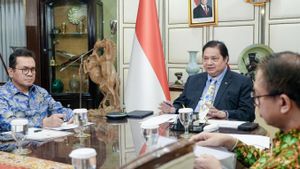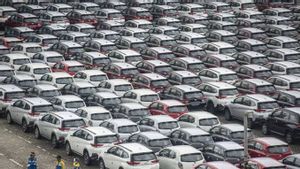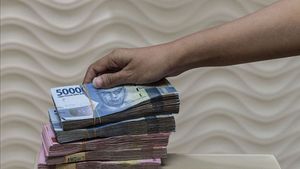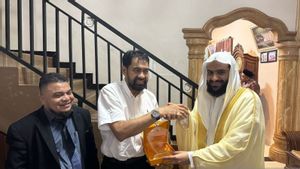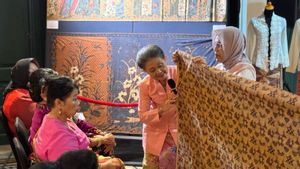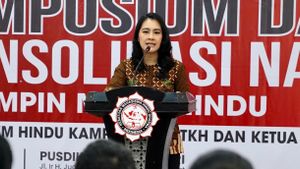JAKARTA - In recent years, the trend of threatening or buying used goods has mushroomed in the Indonesian market. Although it seems as a form of environmentally friendly buying and selling transactions (the principle of reusing or reuse), Thrifting has a negative impact on the Indonesian economy.
Responding to this, Chairman of the Indonesian Chamber of Commerce and Industry Arsjad Rasjid said, although it appears to be a form of environmentally friendly consumption, Thrifting has a negative impact on health, the environment, and the economy.
According to him, sometimes people buy used goods just to fulfill their wishes without considering their needs. This causes the emergence of more waste that must be processed, consuming unnecessary resources.
"In addition, thrifting can also affect the sustainability of the industry. Buying used goods can reduce the demand for domestic clothing manufacturers and brands, and then reduce the income of domestic clothing manufacturers and brands," said Arsjad in a written statement, Monday, March 20.
"The affected industries from these illegal transactions include factories, retail stores, and also related workers in the entire supply chain in the clothing industry," he added.
Actually, said Arsjad, clothing Thrifting used to be illegal imports does not only occur in Indonesia, but also in other countries, such as Kenya and Chile.
In Kenya, the entry of used illegal import clothes drastically reduces the number of workers in the textile industry. During the textile industry's heyday, as many as 30 percent of the number of formal workers in Kenya could be absorbed in this industry.
However, the textile industry, which had employed more than 200,000 workers, can now only absorb less than 20,000 workers due to the high number of imported used clothing.
Then in Chile, as much as 59,000 tons of textile waste was imported to the country from various parts of the world, which caused the garbage to mount because the majority could not be absorbed by the market.
Meanwhile, in Indonesia, based on data from the Central Statistics Agency (BPS), the import value of used clothing increased to 607.6 percent year on year (yoy) in January-September 2022.
"This trend really needs to be watched out for by the government and domestic clothing industry players to avoid an increase in the negative impact of importing these used clothes," said Arsjad.
As a result of this, Arsjad also appealed to the public to better understand the negative impact of threatening clothes from illegal imports.
"In this context it becomes clear, the thrifting of used-import clothing is an inappropriate and detrimental form of circular economy for countries, including Indonesia. Indonesia must protect domestic clothing industry manufacturers and brands, if we want to see the domestic clothing industry progress and compete in the global market," he explained.
According to Arsjad, currently Indonesia has many local clothing brands that have qualified quality and have even penetrated the global market.
Therefore, stakeholders in Indonesia need to focus on efforts and campaigns to be proud to shop and wear Indonesian-made products, together promoting the best products of MSMEs in the country.
"Let's work together to promote quality local products and support our economy. In this way, we can build a strong and sustainable Indonesian clothing industry, as well as encourage Indonesia's economic growth," he concluded.
It is known that since 2015, the government has banned the practice of importing used clothes through the Regulation of the Minister of Trade Number 51 of 2015.
This means that so far, buying or selling imported used clothes is an illegal sale and purchase transaction because imported clothing is categorized as fashion waste and is prohibited from being imported because it is related to aspects of health, safety, security, and the environment.
The English, Chinese, Japanese, Arabic, and French versions are automatically generated by the AI. So there may still be inaccuracies in translating, please always see Indonesian as our main language. (system supported by DigitalSiber.id)
